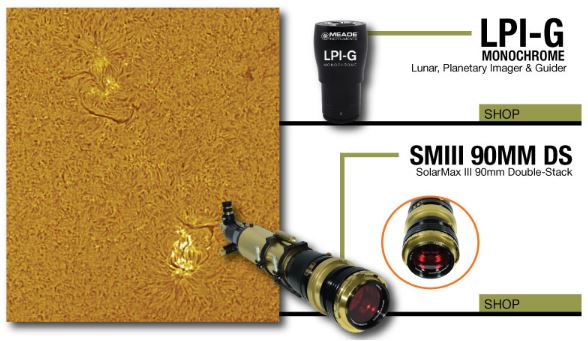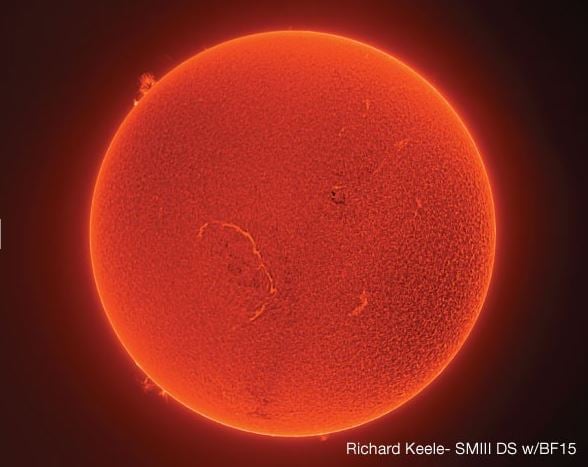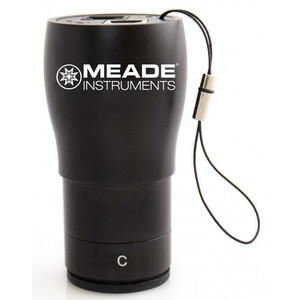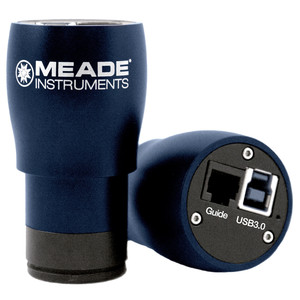Glossary | Telescopes | General | Series | Solarmax III

Observing the sun in H-Alpha is a lot of fun using these compact SolarMax III telescopes! The integrated ‘True’ Etalon filter provides higher contrast and a sharper image than other solar telescopes with smaller filters.
SolarMax III telescopes have an improved focuser with sensitive focusing and other high-quality features. The filters can be removed from the Solarmax III, allowing the solar telescope to also be used as an achromat for observing the night sky.
The sun is observed at a wavelength of 656 nanometers - known as H-alpha - showing an ever active solar surface and prominences at the sun's edge. There is always something to see on the sun in the H-alpha!!
Double Stack
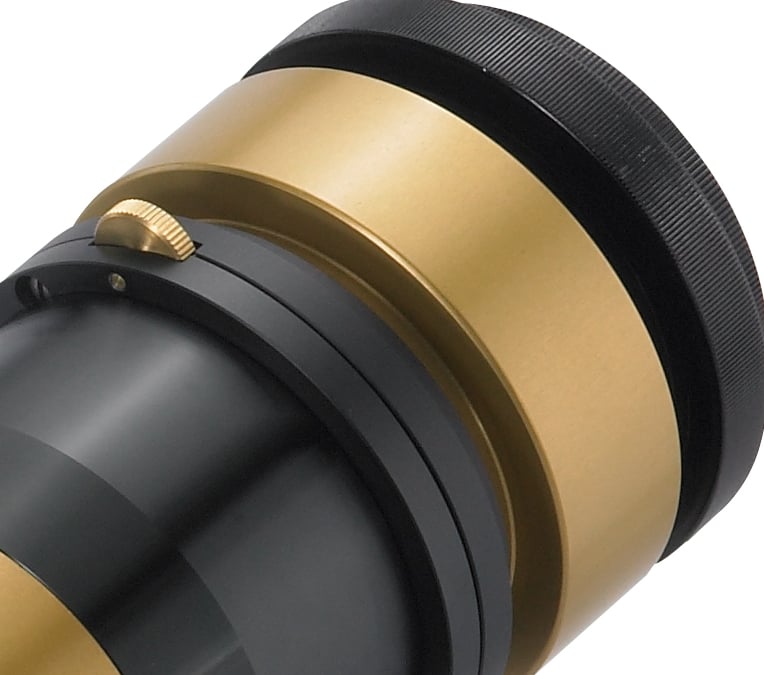
Many solar telescopes are also available with a Double Stack. This means that two Etalon filters are installed, one behind the other. This reduces FWHM of the transmitted H-alpha line light to less than 0.5 Angstroms. Without a double stack, the FWHM is below 0.7 angstroms.
The smaller FWHM means noticeably higher contrast. The structures on the sun appear three-dimensional. The narrower FWHM of the filter also means the image is darker and requires fine readjustment using with the systems tuning system.
Blocking Filter
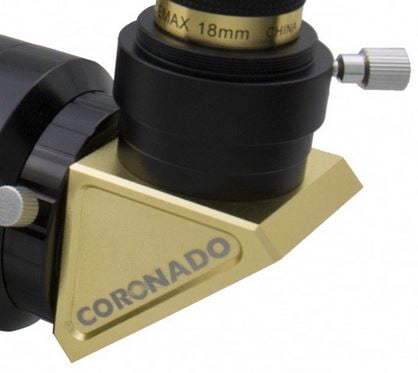
The deflection optics with the eyepiece receiver also accommodate the blocking filter. This filter reduces the brightness of the solar image and is therefore a very important part of the solar telescope, and which must under no circumstances be removed!
The number after the BF in the product name indicates the diameter of the blocking filter in millimetres. For example, BF10 means that the blocking filter is 10 millimeters in diameter. For purely visual observing, a small blocking filter is sufficient, but for photography a larger one should be selected.
Sol Ranger

Pointing a telescope at the sun is more difficult than you may think and can often involve involuntary glimpses of the sun with unprotected eyes!
The Sol Ranger finder scope is a special solar finder that uses a ground glass screen.
This allows you to point your telescope at the sun easily, safely and quickly.
RichView™ Tuning
The Doppler effect causes the wavelengths of interesting structures to vary around the H-alpha line of 656.3 nanometers. This effect is particularly noticeable in the change between the central solar disk and the edge (prominences).
The RichView™ tuning system allows you to adjust the filter, to find the best possible contrast.
Meade LPI-G
